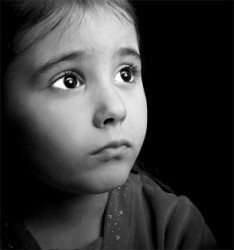By: Ashmar Mandou

An estimated 3,000 cases of child sexual abuse go unreported in Chicago alone. In honor of Child Abuse Prevention Month, Chicago Children’s Advocacy Center will unveil an exhibit on Monday, April 30 to help raise awareness of this issue.
Nunez cited ‘cultural barriers’ has one of the factors contributing to the unknown number of sexual abuse cases, but states that on a national level, 700,000 children are abused in general in the United States. Out of those numbers, 20 percent are Latino children. “When it comes to child sexual abuse in the Latino population it becomes a lot harder to figure out,” said Nunez. “We do know that it is underestimated, but we don’t have specific numbers other than say nine percent of children in general report sexual abuse.”
For Nunez and her coworker Ana Correa, family advocacy manager at CAC, not talking about the issue can pose as serious threats on a child’s psyche as they get older. “From our experience when a family doesn’t address the issue of child abuse, that child, as they get older, becomes more inclined to go into a series of depression,” said Correa. “Other risky behaviors include drug use, gang involvement, and running away from home.”
With extensive experience in outreach within the Latino community, Correa and Nunez have often advised parents to engage in conversation with their child if they notice a shift in demeanor. “Sometimes parents feel the need to interrogate their child,” said Correa. “Parents need to make sure they create an environment that promotes communication. If a child feels like he or she is not being listened to they won’t open up anymore. So parents need to allow their child to talk about what is happening in a safe environment.”
More importantly, Nunez and Correa touched upon the misconceptions they often hear in the community and tips on how to have a healthy dialogue with their child.
Misconceptions
One of the things that often come up as a misconception is the fact that sexual abuse does not happen within the family. That it is done by a stranger. We know based on our research, based on the clients that we see, that often times, especially for Latino families, is that the actual sexual abuse of a child happens by an extended family member, stated Nunez.
Tips
If a parent is noticing a change in the child’s behavior that can mean anything. It can mean that maybe the child is now becoming more isolated, or they seem a little bit more sad or nervous or scared…or they may have difficulty sleeping. If parents are seeing these signs, we advise them to reach out to their community provider to seek assistance. That said, if a child is experiencing these changes that automatically does not mean they have been sexually abused, nevertheless that child may need additional assistance. Search for non profit organizations or agencies that deal with these types of issues. It is important to go out into the community, or reach out to your friends to create a support network, stated Nunez and Correa.
Mental Health
The longer a child goes on without receiving the support they need, for example, counseling or a support group, that child can become distressed. That is often the case when we see children who come to the center [CAC]. And what that means is that they could be potentially suicidal, or homicidal, that their symptoms are really to the point where they need more intensive services and without assistance it often impacts a lot of things. It impacts their academic performance, their social skills, and in the long run their health, stated Nunez.
At the end of this month, CAC will unveil an awareness exhibit on Monday, April 30 that intends to tragically highlight victimized children who cannot speak up for themselves and adults who choose not to speak up. The exhibit will feature 3,000 stuffed animals that will symbolize voiceless children. It will be held at the Daley Plaza, 50 W. Washington St., from 7m to 7pm. In addition, Casa Central, 1343 N. California, will host a Child Abuse Prevention program on April 26th to help raise awareness of this issue. If you would like to learn more about Child Abuse Prevention, call the Chicago Children’s Advocacy Center at 312-492-3700. To report an abuse, call the Illinois Child Abuse Hotline at 800-252-2873.











